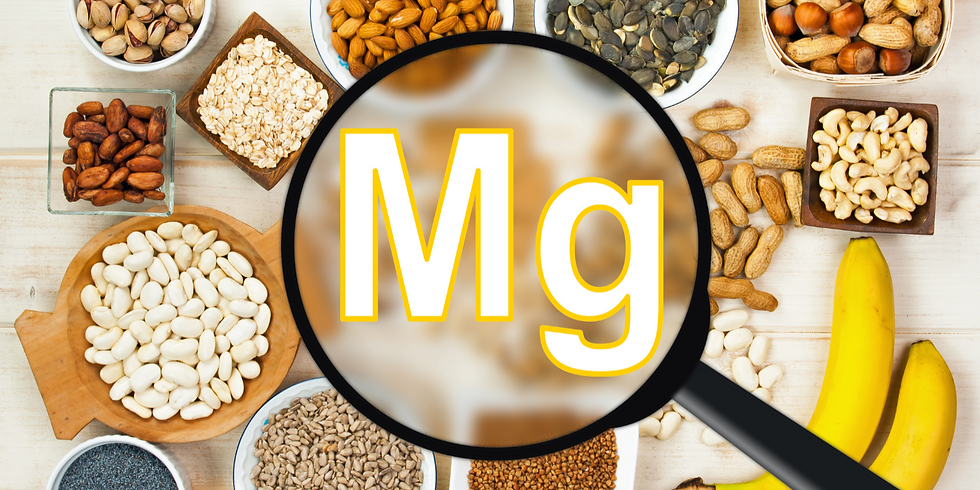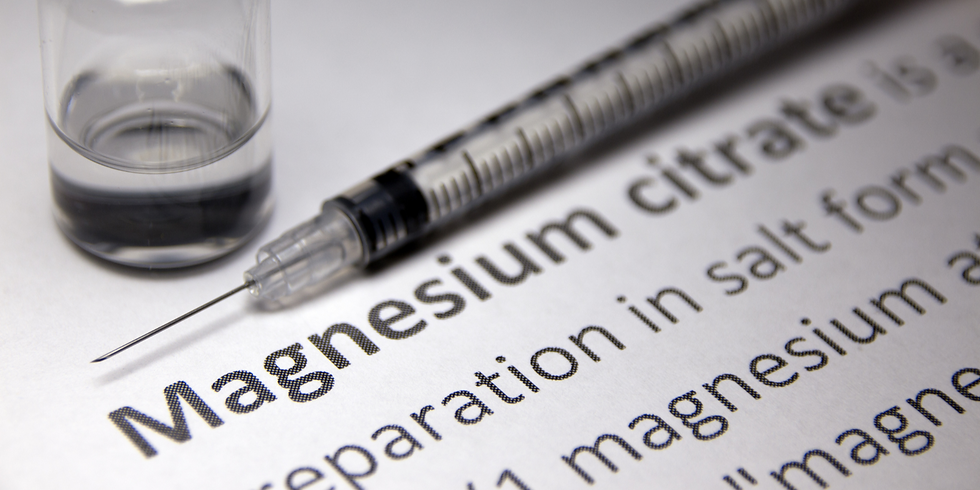One Vitamin Deficiency: The Root Cause of Depression?
- Ashley Oswald, RDN, IFNCP, CNSC, CLT, LD

- Jan 30, 2022
- 6 min read
Updated: Nov 28, 2023
Video Transcript:
Did you know, that there is one micronutrient, then when deficient in this, it could be the root cause of depression and low mood in someone?
And it's not just clickbait. This is absolutely true per the research.
I'm also going to talk about how to test for this, food sources that are high in it, and why someone might get a deficiency in this.

So depression is a big topic, and we're just talking about one little piece of the conversation.
This can be the cause for one person, and not the cause for the next.
Depression is often multi-factorial!
But it's so important that you look into this nutrient and make sure you have a good store, considering that it can cause depression or contribute to it.
Certainly, life events factor into depression too.
There can be hormone imbalances and gut imbalances.
There are a lot of possible root causes of depression.
Functional nutrition has a lot of tools in its toolbox to help with depression, especially if there are physiological causes.
What Vitamin Deficiency causes Depression?
And the micronutrient we're talking about is Vitamin B12.
A Vitamin B12 deficiency can actually damage this thing called the myelin sheath. And this covers your nerves. It helps to protect your nerves. So if this gets damaged, those nerves can get damaged.
And this can lead to things like depression, poor memory, actual brain damage, fatigue, tingling, numbness, and even ear ringing. There's some research showing a B12 deficiency could be the cause of ear ringing too.

Also, if you have physical signs that look something like these images here.
So these little white bumps on your skin, or this off pigmentation like this hyperpigmentation or little blotches or cracks in the corner of your mouth, can all also be signs of a Vitamin B12 deficiency.
How do you know if you are having Vitamin B12 deficiency?
So now you're probably wondering how to know if you have a vitamin B12 deficiency.
This can be tested, but some tests are better than others.
So I want to make sure to talk to you about this because the tests that you're likely getting in, just the general doctor's office, are not going to be as sensitive or pick up on a deficiency as early as they should.
So in other words, if the general blood test is showing a deficiency, you likely have already had damage from this deficiency.
There are four tests that I want to talk about:
Serum B12
The first one is a serum B12, and that's the one that I just mentioned that for 50% of people with subclinical vitamin B12 deficiency, this is going to show up as normal.
So again, by the time that lab shows a low level, you're already having damaged this myelin sheath and likely also having symptoms from that such as depression, poor memory, brain damage, fatigue, tingling, and numbness.
CBC
The second test that I want to talk about is the CBC (complete blood count), which you might have already from just your conventional doctor.
Look at that and see if you see something called MCV. And if that's high, that can be a sign of a vitamin B12 deficiency.
Homocysteine
Another lab is homocysteine. If homocysteine is high, it could be a sign of either vitamin B12 or folate deficiency. So you have to dig a little bit deeper for that one.
Methylmalonic Acid
Now, this last one is the gold standard test, which is something called methylmalonic acid, which is organic acid testing.
Methylmalonic acid needs enzymes and vitamin B12 in order to be converted into succinate.
This is a urine test, and if too much of the methylmalonic acid is spilling over into the urine, it means that you don't have enough of that middle vitamin B12 to convert the methylmalonic acid to the succinate.
And thus it's a good indicator of a vitamin B12 deficiency.
So, this is the best test to get.
It doesn't tell us how much supplementation is needed to replace a low level, but it is the most precise and accurate lab test to show if you have a deficiency, and then we can go based upon the kind of general standard replacement amounts that typically work for most people.
And then we just re-check the lab and see if it's improving.
And once it's improved, then we'll either just decrease to a maintenance dose, or make sure that an individual is eating foods that contain adequate vitamin B12, because after a deficiency's replaced, you know, ideally, hopefully, we can just keep up that nutrient level by using food, right?
The best source of Vitamin B12

So let's next talk about foods that contain vitamin B12.
The best food sources of vitamin B12 are animal products.
So if you're vegan or vegetarian, you are going to have a harder time getting adequate Vitamin B12. You have to be very mindful of this.
Some vegans and vegetarians are likely eating fortified foods with B12 or getting it in a multivitamin, or maybe from vegan sources, which I'll talk about in a bit. So not everyone who is vegan or vegetarian will be deficient, but they are at higher risk due to not eating meat.
There are other reasons, even if somebody is eating enough meat products, why they might have vitamin B12 deficiencies.
Liver, Oysters, & Meat
And we're going to talk about that next. So you really just need about the size of your palm in meat a day.
Liver is a really great source of Vitamin B12. Try to always buy quality meat products, from grass-fed beef whenever possible, living in a more natural way.
To make liver, you can either just sauté it with onions, or you can put it on skewers and roast it over an open fire and then put some salt and pepper on it. That's another tasty way.
Oysters, are a great source of vitamin B12, and then a variety of other meats.
Vegan Sources
Two good vegan sources of Vitamin B12 include mushrooms and nutritional yeast.
Often nutritional yeast is fortified with some nutrients, including Vitamin B12. You might just want to check the quality of what it's being fortified with, as some people can't tolerate certain forms of vitamin B12 well (some people would benefit from a methylated B12 vs. a non-methylated, and too much could actually provoke anxiety in certain individuals - so just tune into how you feel after starting this supplement or taking more through fortified foods.)
Fortification basically means that this is being added to the product. It's not being removed and then added back, but rather added on top of what is naturally in that food. You can think of it like a supplement that's being added to the food.
So if you do eat meat products pretty regularly, and you find out or think you might have a vitamin B12 deficiency, it could be for a number of reasons.
Reasons for low B12

One reason might be that either you're not making enough stomach acid, or you're on a medication that's suppressing your stomach acid.
We need the stomach to be functioning properly, to be releasing this thing called intrinsic factor, which helps to cleave the B12 off of proteins.
So when you eat the meat, the stomach's job is to cleave that off then, and then it freely flows down to the third part of your small intestine - that ilium where the B12 is absorbed, which brings up the next point.
If you've struggled with like IBD or some other gut issues, and you had part of your intestines removed (in specific, the ileum, the third part of the small intestine), this could be causing a B12 deficiency for you because that's the part that's needed in order for it to get absorbed.
Or if you tend to get Crohn's inflammation in the area of your ileum, then that could be a root cause as well.
Individuals struggling with bacterial overgrowth or yeast overgrowth and have just general malabsorption could be struggling from the malabsorption factor with that ilium again.
But also bacteria overgrowth could cause low stomach acid, and as mentioned above, the low stomach acid could be causing a vitamin B12 deficiency. So it might be a double whammy there.
And then when I talk about the medications for stomach acid, I'm talking about proton pump inhibitors and H2 blockers. So things like Prilosec are very popular. This could cause a deficiency of Vitamin B12.
And I'd also like to note that as people get older, so over the age of 60, it's estimated that one in five individuals do have low stomach acid. The body naturally starts to make less stomach acid, and this could be why older individuals might be at higher risk of not only a Vitamin B12 deficiency, but also of mineral deficiencies like zinc and magnesium and some others.
And then lastly, it could be a genetic predisposition as to why someone might have a more difficult time getting adequate B12 from food sources.
Here is a high quality professional Vitamin B12 supplement that you can use, if you suspect you have a vitamin B12 deficiency, or have lab testing to show this:
Vitamin B12: https://flussonutrients.nutridyn.com/b12-pro
Vitamin B12 with Folate Tablets: https://flussonutrients.nutridyn.com/methyl-b12
Vitamin B12 with Folate Liquid: https://flussonutrients.nutridyn.com/liposomal-b12-folate-r174
Disclaimer: always check with your nutrition/supplement-literate healthcare provider before starting any supplement, as we can't possibly know your medical history, and no one supplement is safe for everyone.
If you don't have a nutrition/supplement-literate healthcare provider, and would like one, you are welcome to schedule with our sister company - Oswald Digestive Clinic




Comments